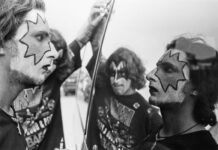“In one day one can experience the horrors of hell; there is plenty of time for that.”
Wittgenstein
As a matter of fact, in this century everything has been unmasked, everything has at least once shown its true face, has revealed itself as what it actually is. The soldier as a professional murderer, politics as criminal wheeler-dealing, capitalism as a large scale enterprise for annihilating people, equipped with cremation ovens, the law as a set of rules for dirty deals, the freedom of the world as a prison for people, anti-semitism as Auswitz, national sentiments as genocide.
Imre Kertész
~~{}~~
The, provocative for sure, title of this text is derived from the first book of the Japanese writer Kenzaburo Oe.
Oe describes his first experience with the preposterous, the absurdity of violence – of war, no less.
During World War II a dog-slayer had gone to Oe’s village, following orders of the headquarters to slay all of the dogs and remove and take their skin for military usage.
The peasants, demonstrating remarkable obedience, surrendered their dogs. The slayer did what he was appointed to do and took their hide.
But the next day the children found the dog skins lying outside the village.
Oe couldn’t decipher or understand the reason for this meaningless slaughter. He perceived, from such an early age, that war is senseless. This was reinforced by his father’s death at the front and was entrenched by the drop of “Little Boy”.
~
On the 6th of August 1945, the Americans dropped the first nuclear bomb (using enriched uranium) on Hiroshima. 70.000 people died on the spot. 60.000 died afterwards, due to the exposure to radiation. The 75% of the buildings were utterly destroyed.
But this was not mad enough. They had to drop a second one (of plutonium this time) three days later on Nagasaki.
~~{}~~
May writers as Kertész, Elie Wiesel, Primo Levi, Iakovos Kambanellis forgive me, but I feel that the most horrendous moment of the 20th century, perhaps the most horrendous in human history, twice, was not the crematories but the atomic bombings of Hiroshima and Nagasaki.
That was the Hell of Wittgenstein, because it lasted only for a few seconds.
One moment there were two cities that they were spared from bombing and their citizens had high hopes that the war would be over with no collateral damage for them, and then, in the blink of an eye, like a flash, tens of thousands of people were evaporated and towns were razed to the ground.
Man had thrived, in the image of God who eliminated in an instant the cities of sinners, namely Sodom and Gomorrah.
At that time man became equal to Yahweh, destructively-wise.
~~{}~~
The paradox is that while everybody recognizes the horror of the crematories (except from the misanthropes and those who do not know history), the issue of the horror of nuclear bombs is debatable.
If you ask the respective president of the United States (no matter who is) about the nuclear bombs, they will tell you that it was something nasty, but necessary to restore peace.
Along the same lines would be the answer of Hitler’s descendants about the crematories, if Nazism had prevailed (read The Man in the High Castle by Phillip Dick, where this alternative ending is described).
~~{}~~
This is exactly the way that Israelis justify the slaughter of Palestine; we kill to bring peace.
However, we should not delude ourselves. This is not an exclusive feat of the Jews, or Zionists or Israel’s army.
It is this scary beast that defines itself as homo sapiens sapiens (sapiens, which means “wise”, is double, to set us apart from our ancestors that slew each other hand-to-hand).
Sapiens’ nationality, religion or race plays no role.
When man has the power, they kill, they impose themselves, they destroy.
And when man loses themselves in the state or in their race or in their religion, then the individual becomes part of the mass and all hope is lost.
If Palestinians were more powerful than Israelis, they would try to wipe out Israel. Whoever is reluctant to give it some thought, they are trapped in the dipole trap of “good and evil” that dogmatics (of every dogma) reproduce so lightly.
~~{}~~
Kenzaburo Oe’s books rocked Japan. The same goes for Kertész’s book, who, in my opinion, has written one of the best books about Auschwitz, “Fatelessness”. Both of them have been awarded with the Nobel Prize.
But the thing is, no matter how many prizes the writers may be awarded, their thoughts are but collateral to an ocean of bigotry.
Yes, violence is the tombstone of humanity.
Call it what you want: State, religion, war, fanaticism, dogmatism, greed.
The loser will always be the man, and the martyrs of fanaticism will be invariably the children, because we’ve got to nip them in the bud, before they grow up and become our enemies.
If this is man, I don’t want to think what God is like.
~~~~~~~~~~~~~~~~~~~~~~~~~~~~~~~~~~
The photo is captured by Elliott Erwitt. The drawing by R.Cobb
~~~~~~~~~~~~~~~~~~~~~~~~~~~~~~~~~~
Sanejoker’s Facebook page:
https://www.facebook.com/sanejoker/
Translated by Alexandros Mantas
https://open.spotify.com/track/10sV3Evs7TQacWEYV9kAHi?si=231de25d9345443a










